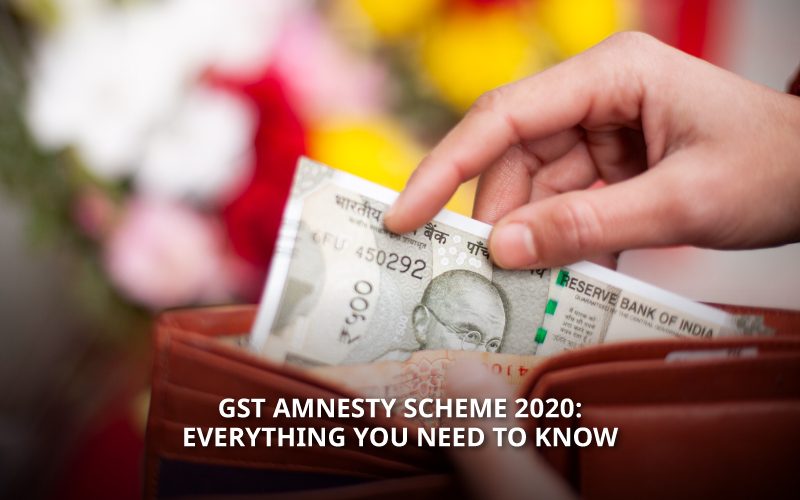The Finance Ministry recorded its highest GST collection since February this year – at a total of ₹1.05 lakh crore. This number is 10% higher than the amount collected last year, in the same month.
Rs 1,05,155 crore of gross GST revenue collected in the month of October 2020.
Read more ➡️ https://t.co/Q51KvtEqiL pic.twitter.com/PhpaoJuccD
— Ministry of Finance (@FinMinIndia) November 1, 2020
However, there are still a large number of non-filers of GST, especially from the MSME sector. These businesses end up paying a late fine to the Government if they do not file returns by the deadline.
To help businesses with a one-time relief from this, the Government introduced the GST Amnesty scheme.
What is the GST Amnesty scheme?
Non-filers of GST returns will have a one-time exemption from paying the fine/fees levied for late filing.
Over 25 lakh businesses have not filed GST returns so far. To reduce any further pressure on the businesses or the GST council, the amnesty scheme will exempt them from any such financial burden.
Also read: How to file GST tax returns?
Why do MSMEs want the GST Amnesty Scheme to be extended?
Since lockdown began, over 60 lakh businesses requested the Finance Minister to defer or extend the filing dates for GSTR3B. The Amnesty scheme was initially extended only till the end of January this year.
However, small businesses want the GST amnesty scheme extended further.
According to a video shared by GST platform, MSMEs are worried that the Government is calculating late fees for GST filing from the ‘Original Due Date’ which was Mar 31 2020.
In the video, the narrator states that businesses who have been severely affected during the lockdown, should not be levied a hefty late fee when production and manufacturing were shut down.
You can catch the entire video here:
GST Amnesty Scheme – 3 important things to know
- MSMEs need to pay around ₹50 per day if they fail to file GST on an actual day. The Amnesty scheme encourages businesses to complete their backlog of non-compliances without fear of Government interference.
- Over 1 lakh businesses have availed the scheme and declared tax dues of around ₹ 79,968 crores, and got it reduced by almost ₹ 40,000 crores.
- The scheme sought to aid SMEs who have not filed GST in years, accumulating huge late fees.
Why do small businesses need to know about GST?
Over 80 lakh businesses filed their GSTR3B returns this month. Demand has been slow, but it is picking up for the festive season.
The Government, in a move to help businesses, had declared that mandatory e-invoicing applied only to businesses with a turnover of over ₹ 500 crores. However, Nishank Goyal, Founder of Masters India, believes that SMEs will in fact benefit from e-invoicing, mandatory or not.
Watch the full video with Nishank goyal explaining the state of GST in India here
If your business is new to GST, and it seems like a complicated process, you are not wrong – it can be.
However, to help you with step 1 of understanding GST, we curated a course, an entire detailed syllabus that covers what SMEs need to know before they register their business for GST.
This mojoVersity course titled ‘Basics of GST for businesses’ covers:
- If GST applies to your business
- How to register for GST if applicable to your business
- Various slabs under GST
- HSN/SAC Codes and TDS/TCS
- How to file GST returns
- How to correct Invoices in case of data mismatch
- Advance rulings of GST

